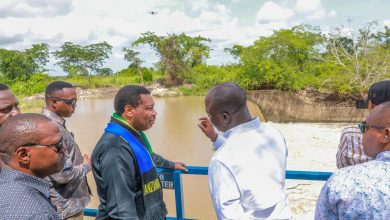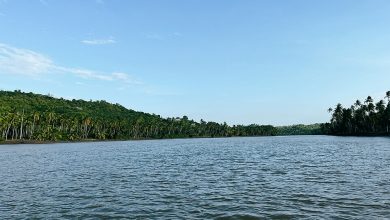Why Union is pillar of PanAfricanism

DAR ES SALAAM: AS the union between the former Tanganyika and Zanzibar continues to thrive, stakeholders have underscored its significance in advancing Pan-Africanism, calling for continued public and youth education to preserve and strengthen this national legacy.
Speaking yesterday at a symposium commemorating 61 years of the Union, Minister in the Vice-President’s Office (Union and Environment), Engineer Hamad Masauni, underlined the need for sustained efforts to safeguard the Union for both present and future generations.
The symposium, held in Dar es Salaam, brought together leaders from both Mainland Tanzania and Zanzibar under the theme “The Union is Our Loyalty, Pride and a Valuable Treasure of the Nation — Participate in the 2025 General Election.”
Eng Masauni urged Tanzanians to recognise the substantial progress achieved under the Union, noting both visible and less tangible benefits.
He pointed out the importance of leveraging education as a tool to deepen understanding and appreciation of the Union.
“Indeed, our Union is a treasure and a legacy, not just a benefit. It is an endowment entrusted to us by our forefathers and we must safeguard and honour it, including by educating the public continuously, not just during commemorative events,” said Eng Masauni.
He noted a major milestone: The reduction of Union-related vexes from 25 to just three, which are currently in various stages of resolution.
He attributed this achievement to the close collaboration between ministers and permanent secretaries from both governments. Eng Masauni also credited President Samia Suluhu Hassan’s ‘4Rs’ philosophy— Reconciliation, Resilience, Reforms and Rebuilding— for playing a pivotal role in strengthening the Union and resolving 13 Union issues during her term.
ALSO READ: Union @60: Pillars of success
“Since its establishment, the Union has brought about remarkable progress in political, social and economic spheres. It represents the spirit of brotherhood and enhances Tanzania’s cooperation with other countries, particularly during this era of economic diplomacy,” he added.
During the panel discussions, former cabinet minister, Dr Harrison Mwakyembe praised Mwalimu Julius Nyerere’s vision for African unity, noting that Nyerere sought to unify not only Tanganyika and Zanzibar but also the broader East African region.
He pointed out that Sheikh Abeid Amani Karume stood out among East African leaders as a willing partner in that mission.
Dr Mwakyembe also condemned misleading campaigns on social media, often led by uninformed youth, that seek to discredit the Union.
Former Minister Hamad Rashid Mohamed echoed these sentiments, saying: “It is everyone’s duty to defend and protect the Union from both internal detractors and external forces, who may attempt to destabilise our peace.”
He reminded attendees of the founding ideals of unity and solidarity, championed by Mwalimu Nyerere and Karume, which continue to guide Tanzania.
Mr Mohamed, another panelist, emphasised that the Union is based not on material wealth but on shared values: Unity, humanity, solidarity for liberation and the collective management of national resources for peace and security.
“Our Union is sacred and must not be compromised by those who wish to divide us. It must be managed wisely, grounded in justice and equality. Every Tanzanian has equal rights—no one is above another. That’s why Mwalimu Nyerere always emphasised that this is a voluntary union,” he stated.
Registrar and CEO of the Copyright Office in Zanzibar, Mtumwa Khatib Amir traced the foundation of unity back to the 1920s when various tribes were brought together under one nation.
She described the 1964 Union between Tanganyika and Zanzibar as reinforcing that initial foundation.





